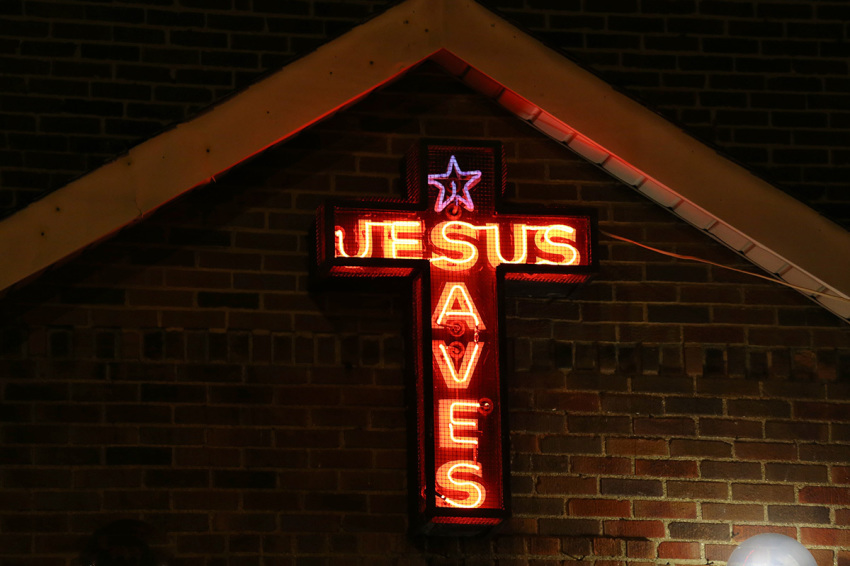Christianity isn't 'intolerant' because Jesus died for 'all humanity': apologist

Christianity is not an "intolerant" religion because being theologically correct is not the same as being intolerant, an apologist contends.
Jason Jimenez, an author who founded Stand Strong Ministries and a faculty member of Summit Ministries, hosted an episode of his "Challenging Conversations" podcast last week in which he fielded questions from listeners.
A couple of questions centered on whether biblical orthodoxy and Christianity, in general, are not relevant to society today, and if Christianity has an "intolerant" belief system.
"Progressive Christians will say, 'You guys are so narrow-minded. You're so locked into your doctrine that you're unmovable. And don't you know that truth changes over time and you're rigid, old-fashioned, backwater, Galilean, first-century style of religion is outdated? And you need to be more inclusive, instead of being so exclusive; [which] leads you to be so intolerant,'" Jimenez said.
"Is there some validity to what some people are saying? Of course. But, the question before us is at the heart of the religion of Christianity: Is it intolerant? Not if it's true."
Jimenez said every religion is exclusive in its own way, adding that "people always make it seem like Christianity is the only religion that is exclusive."
"Go talk to a Buddhist. Go talk to a Jehovah's Witness. Go talk to a Muslim. I mean, I can list so many other religions. So, religions have opposite views. Take Islam and the top three monotheistic religions — Islam, Christianity and Judaism," Jimenez explained.
"They all believe in God. But, only Christianity believes in the Godhead, the Trinity, Trinitarian doctrine. So, already our views of God — other than the fact that there's one God, there's not many — goes out the door. They believe Jesus was a prophet, but they don't believe that He was the Messiah. And there are many Jews who would even claim Jesus to be a prophet. All the Muslims would. But, they wouldn't claim Him to be the Savior of the world to die on the cross for our sins."
Wherever there are opposite views, everything cannot be true, according to Jimenez, who stressed that "it is not intolerant if it's true, but neither can all views be false."
"At least one view must be true," said Jimenez. "If we know them all to be false, that means we have to know something to be true. But we know they all can't be true if they contradict one another. So, when Jesus claims to be that truth, it's either true or it's false."
Jimenez cited 1 Corinthians 15 to stress how the Bible says Christianity wouldn't be true if the resurrection never happened. He added that Christianity is set apart from other religions because the faith challenges its followers to "test it."
"It says to test all things, to hold fast to that which is true. Over and over again, that's what the Bible teaches us. So, if Christianity is proven to be true, then it's not being intolerant. If Christ died for our sins, if He died for all humanity, that doesn't sound intolerant. That shows a great mercy and a great love that Jesus offers salvation for everybody," he said.
"Christianity is the only religion whereby Jesus claimed to be the Son of God, fulfill prophecy, live a sinless life, die and rise from the dead and offer you and me eternal life. That is not something that's intolerant. That is something that is an unconditional offer of grace and mercy."
A recent poll sponsored by Summit Ministries found that although most American adults believe there is an absolute truth, most adults under the age of 30 do not.
Nicole Alcindor is a reporter for The Christian Post. She can be reached at: nicole.alcindor@christianpost.com.



























